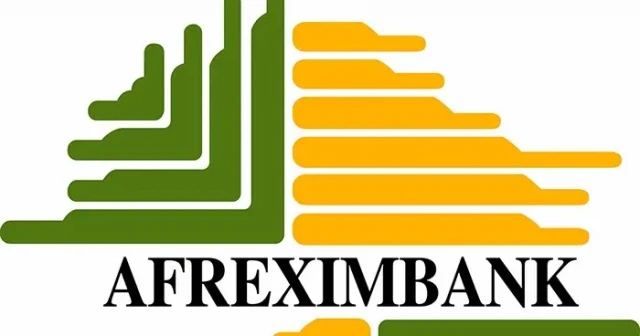With Africa's total debt reaching $1.2 trillion, Afreximbank has emphasized the necessity for governments across the continent to adopt fiscal discipline, highlighting that citizens can expect a notable reduction in national debt profiles starting from 2027.
The bank also reported that global public debt is set to soar to an astonishing $102 trillion in 2024, representing a $5 trillion rise from 2023, largely influenced by the fiscal policies of major economies like the United States, which accounts for 34.6 percent of global debt, as well as China.
In a report titled "African Debt Outlook: A Ray of Optimism," it was noted that while Africa's public debt-to-GDP ratio appears lower than in other regions, the sustainability of its debt servicing has become an urgent issue. Nevertheless, amidst these difficulties, the bank pointed to signs of hope, with recent initiatives indicating that Africa is making meaningful progress in stabilizing its debt situation, with a predicted decline in debt levels anticipated by 2027-2028.
"This encouraging trend is driven by favorable macroeconomic conditions, improved fiscal management, and better access to capital markets," the bank indicated, while also questioning if this trend can be maintained. Afreximbank stressed the need for fiscal discipline, structured debt relief programs, and diversified economic investments as fundamental components for effective debt management.
The bank maintained that Africa can continue its recovery post-crisis by pushing for reforms in the international financial system, encouraging greater transparency, and developing a resilient economic future. To achieve this positive outlook, a comprehensive policy response is essential, urging policymakers to prioritize efficient spending management, revenue generation, and active involvement in initiatives like the G20 Common Framework.
Investments in agriculture, manufacturing, technology, and tourism are expected to lessen dependence on unpredictable commodity markets while advocating for fair treatment between creditors and debtors to promote a more just global financial system.
"The road ahead poses challenges, but with appropriate strategies, Africa's rising debt could transform into a foundation for sustainable growth instead of a ticking time bomb,” the report noted, stating that economic slowdowns often diminish foreign exchange earnings, complicating countries' ability to meet their debt responsibilities and leading to further borrowing.
Moreover, the substantial costs associated with infrastructure, healthcare, and education in emerging markets necessitate substantial financing, which is frequently obtained via loans and various debt instruments. Although there have been global initiatives like the Heavily Indebted Poor Countries (HIPC) Initiative and the Multilateral Debt Relief Initiative (MDRI) that have provided considerable debt relief to numerous African nations, the bank remarked that these relief measures did not completely tackle the underlying structural issues that caused recurrent borrowing, such as limited export diversification and inadequate local revenue generation.
"Africa owes a large portion of its debt to external creditors. In the first half of 2024, ten African nations made up 69 percent of the continent's total external debt stock, an increase from 67 percent in 2023," it stated.
"Since 2008, the external debt of African countries has surged significantly, reaching approximately $1.16 trillion and representing 60 percent of the region's total public debt stock as of 2023. Projections suggest a slight increase to $1.17 trillion, with sustained growth expected to potentially hit $1.29 trillion by 2028. This trend is fueled by the continent's growing financing needs, primarily due to population growth pressures.
"The continent's mounting requirement for funding, particularly for infrastructure development, necessitates long-term debt. From 2008 to 2023, long-term debt saw an increase in comparison to short-term debt. In 2023, long-term debt constituted 75.0 percent of the continent's total debt, while short-term and IMF debts comprised 15.9 percent and 8.9 percent, respectively. "Projections indicate that from 2024 to 2028, long-term debt will continue to represent the predominant form of debt, forming 75.7 percent, 75.9 percent, 76.2 percent, 76.4 percent, and 76.4 percent of total debt over those years," it added.
Although borrowing costs in African countries have surged considerably in recent years, the effective interest rates for borrowing in Africa have spiked notably, peaking at 8.2 percent in 2024. This represents a stark increase from the stable range of 5.4 percent to 6.3 percent recorded from 2008 to 2019.
This rapid rise indicates potential economic difficulties such as increasing inflation, heightened risk perception among lenders, or tight monetary policies. However, the bank indicated that Africa's economic outlook suggests favorable conditions for managing debt, with an anticipated decrease in the debt trajectory in the medium term.
"Forecasts for 2027-2028 predict an average annual reduction of approximately 1.6 percentage points, indicating a long-term move toward better fiscal health. Nonetheless, a rise of 1.8 percentage points is expected in 2024-2025 due to increasing interest rates. Similarly, debt levels in West Africa are projected to fall by 4.3 percentage points, from 51.6 percent to 46.4 percent over the same timeframe," reported Afreximbank.
According to the bank, various crucial factors support this positive trajectory, including a supportive macroeconomic context, a gradual decline in persistently high interest rates, enhanced credit ratings, and renewed access to capital markets. "Furthermore, progress in debt resolution frameworks and emerging momentum in private-sector financing greatly contribute to these advancements. These factors strengthen debt sustainability and demonstrate a synchronized proactive strategic approach to debt management.
"While challenges endure, the overall outlook for these economies is increasingly optimistic as they maneuver through the recovery from the crisis, signaling a positive trend for fiscal sustainability throughout the region. Africa is navigating a complicated debt environment, but the situation can be improved through targeted and actionable policies. Policymakers must focus on robust fiscal measures, engage strategically with debt relief initiatives, foster long-term growth, and advocate for changes to the global financial architecture," the report concluded. Consequently, the bank proposed fiscal discipline, optimizing expenditures, conditional financing, public-private partnerships, and temporary moratoriums as potential paths to alleviating Africa's debt burden.




















